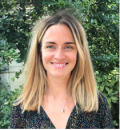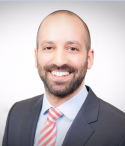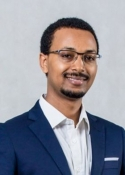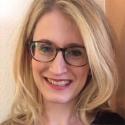The Columbia Law School Human Rights Institute (HRI) allows researchers, students, and employees to engage with a rich professional and academic environment while contributing their specific skills and talents to our mission.
Engagement opportunities range from fellowships and residencies to management vacancies and internships.
HRI strongly encourages applications from persons living and/or educated outside the United States, people of color, women, LGBTQI persons, and persons with disabilities. We are part of Columbia University, which is an Equal Opportunity /Affirmative Action employer Race / Gender / Disability / Veteran.
No vacancies are available at this time
Sign up to receive our monthly newsletter to keep abreast of new opportunities.
Vacancy: Supervising Staff Attorney at the Human Rights Clinic, Columbia Law School
Open Date
January 9, 2026
Salary Range or Pay Grade
$120,000 - $130,000
Description
The Columbia Law School Human Rights Clinic seeks an experienced human rights advocate with a strong interest in clinical teaching. The position will begin in summer of 2026.
The Human Rights Clinic trains students to be leaders in human rights advocacy. Students work on social justice advocacy around the world, in partnership with civil society, communities, and those directly affected by abuse. Through the Clinic, students learn the main tools to advance human rights as well as the theory and critique of human rights.
The Supervising Attorney will work in the Human Rights Clinic, with its directors, staff, and students to advance human rights and address global power imbalances around the world. They will do this through a range of activities including implementing clinical projects, syllabus development, teaching, scholarly research and writing, and human rights programming.
The Supervising Attorney will be an integral part of the Columbia human rights community, and will play a key role in fostering this community, especially through the Law School’s Human Rights Institute (HRI), the hub of human rights research, advocacy, and education at Columbia. Over the course of their appointment, they will undertake increasing responsibility in the Clinic, including designing and teaching clinic seminars; building and leading clinic projects in partnership with civil society organizations and impacted communities; and providing close supervision, guidance, and feedback to teams of students working on those projects. Through this work, they will be equipping students with the skills necessary to be strategic and creative human rights advocates, critically analyze human rights, and advance innovative human rights methodologies. The Supervising Attorney will also contribute to and lead HRI programming and conduct and be supported to pursue their own scholarly research and writing.They will be provided extensive professional, teaching, practice, and scholarship mentoring from the Clinic Director and other senior staff at the Clinic and HRI.
The successful applicant will be appointed as Supervising Staff Attorney and hold the University title of Associate Research Scholar. They will also hold a secondary instructional appointment, pending faculty approval, as a Lecturer in Law for each semester in which they teach. The duration of the appointment is for a period of three years, which may be renewable based on performance for a further one-two years.This is a non-tenure track position.
Qualifications
Minimum Qualifications:
- J.D. or equivalent legal degree for any jurisdiction;
- Strong academic qualifications; and
- A minimum of five years of experience working as an international human rights advocate.
Preferred Qualifications:
- A deep commitment to rigorous, pragmatic, creative, and self-reflective social justice and human rights work;
- A deep commitment to teaching and mentoring new generations of advocates, a passion for education, and a strong interest in pedagogy theory and practice;
- Strong interest and ability in challenging existing norms and methods in the human rights field, and an interest in pursuing new interdisciplinary and critical research and scholarship;
- A strong education in and awareness of critiques of human rights, and a commitment to integrating those critiques into human rights practice;
- Experience, initiative, and ability to undertake independent research;
- Substantive legal and practical knowledge across multiple human rights issues;
- Strong interest and commitment to fostering an inclusive, welcoming, and supportive environment within the clinic, as well as to empowering others to bring their full identities, backgrounds, and perspectives to seminars and projects;
- Knowledge of and exceptional ability to implement the wide range of tactics and tools employed in the human rights field, and commitment to the strategic use of these to challenge existing injustices and hierarchies, including within the human rights field itself;
- Project, team, and time management and organizational skills, and excellent interpersonal skills;
- Deep personal commitment and ability to work in mutually empowering, collaborative, and rights-respecting partnerships and coalitions, including in particular with communities affected by human rights violations; and
- Second language abilities.
Application Instructions
Applications will be considered on a rolling basis until the position is filled. Apply here.
Applicants should submit: (a) a letter of interest, describing the applicant’s qualifications and interest in the position (Cover Letter); (b) a one page statement of the applicant’s vision of human rights clinical education, primary areas of interest in the development of human rights scholarship and practice, and any clinical project(s) the applicant would propose to develop in the first year of their appointment (Proposal); (c) a curriculum vitae; (d) a law school transcript; (e) two letters of recommendation; and (f) the names of no more than three additional references (Other Document).
Human Rights LL.M. Leadership Program
Columbia Law School offers a Human Rights LL.M. Fellowship for individuals with extraordinary potential in the field of international human rights. The Fellowship is designed to support students pursuing an LL.M. degree at Columbia who show exceptional commitment and potential to use their education to become innovators and leaders in human rights practice and/or academia.
The Human Rights LL.M. Leaders program is jointly coordinated by the Human Rights Institute and the Office of Graduate Degree Programs, which manages the School’s LL.M., Execrive LL.M. and J.S.D. programs. Fellowships offer partial waivers of tuition.
LL.M. Human Rights Leaders receive tailored skills and career mentoring in both practice and academic scholarship from Human Rights Institute faculty, staff, and advisors; are invited to special events with leading human rights advocates and scholars, and are allowed to participate in the Human Rights Institute’s cutting-edge research projects. Fellows are also given special consideration for admission to Columbia’s Human Rights Clinic, an innovative course where students learn to be strategic, creative, and critical human rights advocates while pursuing social justice in partnership with civil society and communities, and while advancing human rights methodologies and scholarship. Fellows are expected to devote a significant part of their studies while at Columbia to human rights, and to take an active part in the law school’s vibrant human rights community.
Applicants must demonstrate experience in international human rights and a commitment to a career in the field, whether in academia and/or human rights practice. Candidates from Africa, Asia, and Latin America, and candidates who face impediments to education and leadership because of their race, ethnicity, religion, socio-economic background, gender, or sexual orientation, are strongly encouraged to apply.
Columbia Law School Human Rights Institute 1L Advocates Program
The Human Rights Institute curates a human rights program for first-year law students interested in pursuing a career in human rights law: The Human Rights Institute 1L Advocates Program. The program works, in partnership with the Social Justice Institute (SJI) and Rightslink, to create a space for students who would like a career in human rights. This program is a cornerstone of the SJI Public Interest/Public Service Fellows program, which will be rolled out in 2019. The 1L Advocates Program will provide the structure, support, and skills necessary to work toward preparing students for a career in human rights during their 1L year.
Post Graduate Fellowships
David W. Leebron Human Rights Fellowship
The David W. Leebron Human Rights Fellowship enables a Columbia Law School graduate to spend one year working with a host organization on a human rights project of the graduate’s choice anywhere in the world.
Sandler Fellowship
Human Rights Watch, a leading international human rights monitoring and advocacy organization, has created the Sandler Fellowship for a Columbia Law graduate from the J.D. program in honor of Judge Leonard Sandler ’50. The fellow will spend one year in either the New York City or Washington, D.C. office monitoring human rights developments in various countries, conducting on-site investigations, drafting reports on human rights conditions, and engaging in advocacy aimed at publicizing and curtailing human rights violations.
Herbert & Nell Singer Social Justice Fellowship
This Fellowship honors class of 1928 graduate Herbert Singer and his commitment to providing support to meaningful learning experiences in public interest law. This annual Fellowship will help launch the social justice career of a J.D. Columbia Law graduate who demonstrates substantial commitment, ability and preparation for making a difference as a public interest lawyer by providing a stipend to be a staff attorney or do your project at a not-for-profit organization in the United States. The Fellow must begin work within five months after graduation or completion of a clerkship. Please visit the Social Justice Initiatives website for more information.
Visiting Scholars
The Human Rights Institute Visiting Scholars are doctoral candidates from other academic institutions, who are in the final stages of completing their degrees. During their stay at Columbia Law School, scholars engage in research, writing, and scholarly discussion in a robust academic environment. They benefit from the possibility of engaging with many faculty members, course offerings, student organizations, and programs focused on human rights, including the Human Rights Institute’s.
2020–2021 Visiting Scholars

Marie de Pinieux
France
Marie de Pinieux is a Ph.D. candidate in private law at La Sorbonne University. She has been working on her thesis entitled “Business and Dignity” for four years under the supervision of Professor Trébulle. Her thesis examines the business involvement in human dignity abuses (modern slavery, crimes against humanity, torture) in the context of globalization. More precisely, it explores how domestic law and international law can be used to prevent and redress corporate-related human dignity violations. She’s also a Professor Assistant at La Sorbonne in Corporate law, Tort law, and Contract law.
2019–2020 Visiting Scholars

Leander Beinlich
Germany
Leander Beinlich is a research fellow with Professor Anne Peters at the Max Planck Institute for Comparative Public Law and International Law, Heidelberg, and a Ph.D. candidate at Freie Universität Berlin. His Ph.D. project explores the role of the individual and domestic courts in the fields of foreign affairs and international law. Specifically, it examines how individual claims arising from international law violations can be enforced within domestic legal systems and the role and potential of international individual rights in informing the domestic enforceability of such claims. Beinlich obtained his First State Exam after studying law at the University of Heidelberg. During his studies, he spent five months as a trainee at the European Center for Constitutional and Human Rights in Berlin. His Ph.D. project is supported by the German National Academic Foundation.

Rafaela Sena Neves
Brazil
Rafaela Sena Neves is a doctoral candidate in Human Rights at the Federal University of Pará. Her research focuses on the compliance in Human Rights but also touches on international law as well as political science. In her dissertation, she explores the dynamic between Latin American courts and the Inter-American Court of Human Rights at the stage of monitoring compliance. She teaches students in Human Rights and International Law.
2018–2019 Visiting Scholars

Michael Agi
Germany
Michael Agi is a doctoral candidate and research assistant at the Institute for International Peace and Security Law of Professor Claus Kreß at the University of Cologne. He also teaches students in criminal law. Agi’s research focuses on the principle of proportionality in international humanitarian law and international criminal law. His dissertation deals with a dogmatical interpretation of the principle in order to make its application more transparent and traceable. As a first-generation German born to Syrian parents, Agi grew up bilingual in a mixture of both cultures in the city of Cologne. Graduating from the University of Cologne with a law degree, he obtained the First State Exam in 2016.

Mehrnusch Anssari
Germany
Mehrnusch Anssari is a Ph.D. research fellow at the Institute for International Peace and Security Law at University of Cologne in Germany. Her research pertains to the temporal scope of the right of self-defense once it has been triggered by an armed attack. Anssari began her education in international law at Cologne University with two semesters abroad at Istanbul Bilgi University and National Law School of India University. After acquiring her LL.M. advanced degree in Public International Law at Leiden University, she practiced international law during her legal traineeship program at the German Permanent Mission to the United Nations in Vienna and at the Codification Division of the United Nation’s Legal Office in New York, where she focused on a comprehensive research project, servicing the International Law Commission. Additionally, she was a legal researcher and trainee lawyer at the law firm Freshfields Bruckhaus Deringer.

Paula Fischer
Germany
Paula Fischer is a doctoral candidate and research assistant at the Institute for International Peace and Security Law of Professor Claus Kreß at Cologne University. Her research focuses on the use of force in international law but also touches on the international law of sanctions as well as constitutional and criminal law. In her dissertation she explores the issue of errors relating to circumstances justifying the use of force by states. She teaches first-year students in criminal law.
Fischer obtained her First State Exam at Cologne University in 2017. She has a LL.B. from Cologne University and a Maîtrise en Droit from the Université Paris 1 Panthéon-Sorbonne, where she spent two years studying French law. Currently, Fischer is a fellow of the German Academic Scholarship Foundation and the German Academic Exchange Service. She loves music and plays the piano and the organ.

Berihun Gebeye
Ethiopia
Berihun Gebeye is a doctoral candidate in Comparative Constitutional Law at the Central European University. His doctoral research is about how the interaction between liberal constitutional ideals and indigenous African legal and political systems influences the nature and practice of constitutional government in Africa. Drawing from religious studies and anthropology, his research uses what he calls “legal syncretism” as a conceptual framework to understand and explain the nature of the post-colonial African state, its organization, structure, and notion of constitutional rights by taking Nigeria, Ethiopia, and South Africa as comparative case studies.
Gebeye was a Visiting Researcher at the Centre for Socio-Legal Studies of the University of Oxford, a Global Teaching Fellow at the University of Yangon, Myanmar, and a Lecturer at the School of Law of Jigjiga University, Ethiopia. He received his LL.B. in Laws from Haramaya University, LL.M. in Human Rights Law from Addis Ababa University, and LL.M. in Human Rights with International Justice Specialization from Central European University.
Practitioner-in-Residence Program
The Practitioner-in-Residence program is designed for human rights practitioners from non-governmental organizations, government, the United Nations, and other intergovernmental and international bodies, who seek an environment in which they can engage in research, writing, and scholarly discussion connected to their human rights practice.
The program is intended to promote human rights scholarship grounded in practice, as well as practice informed by scholarship and critique. Applications are particularly encouraged from the global south, and from those working on issues related to the Human Rights Institute’s areas of focus.
While in residence, the practitioners are expected to work on their own scholarly, advocacy, or policy-oriented papers, human rights reports, or books for publication, or to develop workshops and new research agendas or prepare for conferences or new human rights projects. Some practitioners may wish to conduct advocacy at the United Nations or elsewhere.
What to expect
Practitioners may be in residence for a flexible period of between one month and one year. For those interested, mentoring about academic scholarship and human rights work product is available, as are opportunities for presenting and obtaining feedback on draft work. Interested practitioners will also have the opportunity to participate in the broader intellectual life of the law school, and may deliver guest lectures in the Columbia Law School Human Rights Clinic and other human rights course offerings, participate in the mentoring of Columbia Law School students, advise on ongoing projects of the Human Rights Institute and Clinic, and design workshops or other events with experts from the field.
Practitioners-in-Residence will be provided access to Columbia University libraries, student research assistants, invitations to law school and university events and workshops, administrative support for event design and planning, and the opportunity to be integrated into the Human Rights Institute.
The Practitioners-in Residence program does not provide a salary or cover travel or living expenses. Each year, however, one or more applicants from the global south are selected to receive a “Global Advocate Award” to offset expenses associated with travel to New York and expenses during the residency in New York. Depending on the length of the residency, the award may not cover all expenses.
Alumni spotlight

Osamah Al-Fakih
Yemen
Osamah Al-Fakih is the Director of Media, Communications, and Advocacy at Mwatana Organization for Human Rights (Mwatana), and his research and advocacy have focused on defending human rights against mounting violations by all sides to the current conflict in Yemen. Prior to that, he directed Mwatana’s research unit, leading field investigations into human rights abuses in Yemen. Previously, Al-Fakih collaborated with different local and international organizations including Human Rights Watch and Amnesty International. He was a fellow at Dejusticia, and co-founded #SupportYemen Media Collective during the 2011 uprising. Graduating with a Bachelor’s in English Literature from Sanaa University, Al-Fakih’s dedication to defending human rights was inspired by early experiences during the 2004-2010 Sa’ada Wars in Yemen.

Sarah Jackson
United Kingdom
Sarah Jackson is Deputy Regional Director for East Africa, the Horn of Africa and the Great Lakes for Amensty International. Based in Kenya, Uganda and Burundi for the last decade, Jackson has worked with Amnesty as Acting Deputy Africa Director, Head of the Africa Regional Office and Rwanda, and Burundi Researcher and with the American Friends Service Committee as Burundi Program Officer. She previously worked as Human Rights Watch’s Great Lakes Associate.
Jackson was selected as one of 35 Women Under 35 in 2017 by Management Today in association with Accenture. She is also a Carnegie New Leader with the Carnegie Council for Ethics in International Affairs in New York, and a Fellow with Foreign Policy Interrupted. She holds a Master’s in Comparative Politics and a Bachelor’s in Government and History from the London School of Economics and Political Science (LSE), is a Harvard-trained negotiator, and an alumna of Harvard's Executive Education Program.
How to apply
To apply, practitioners should send: (a) their CV; (b) a one-page letter of interest; (c) a project or research proposal of no more than five pages, setting out the applicant’s proposed work plan for their residence at the Human Rights Institute; and (d) two references. Please send all applications with the subject line “Application for Practitioner-in-Residence Program” to [email protected]. Applications will be accepted on a rolling basis, with practitioners ideally selected at least three months in advance of their residency.
Training and practice opportunities at Columbia Law School include the opportunity for students to work closely with HRI faculty and staff as research assistants, becoming involved in cutting-edge human rights and international law projects. All Columbia Law School students, including 1Ls and LLMs, are encouraged to apply to research assistantships at HRI, where they will collaborate with one or more of its faculty and staff on issues ranging from health, labor, and gender-based rights internationally and in the U.S., to international law, counterterrorism, and armed conflict; and business and human rights in the global economy. Positions could be paid and/or done for credit or pro-bono hours. Check back for specific assistantship announcements.
Through the Columbia Law School, students can access internships that provide experience and the opportunity to advocate for human rights. Students are given the chance to choose from internships around the world, all dealing with significant human rights topics, from helping establish the International Criminal Tribunals on Rwanda and the former Yugoslavia, to researching prison conditions in Sri Lanka, to assisting in the writing of a Freedom of Information Act for Guatemala. Training is available before internships, allowing students more substantive assignments.
Columbia Law School guarantees summer funding for human rights internships at a broad range of organizations both in the U.S. and abroad. For more information on the Human Rights Internships Summer Program for Columbia Law School students, please visit the Social Justice Initiatives website.
Internships are also available with the HRI team, open to all Columbia students in areas such as communication, program management. Check back for specific internship announcements.
The Human Rights Institute offers work-study positions for undergraduate and graduate students at Columbia who are interested in gaining experience working in the Human Rights field during their studies. Opportunities may include administrative assistance, communications and outreach, event management, research, and more. Students will have the opportunity to work closely with the HRI team and contribute to HRI's mission of advancing human rights through scholarship and practice.
No vacancies are available at this time.
